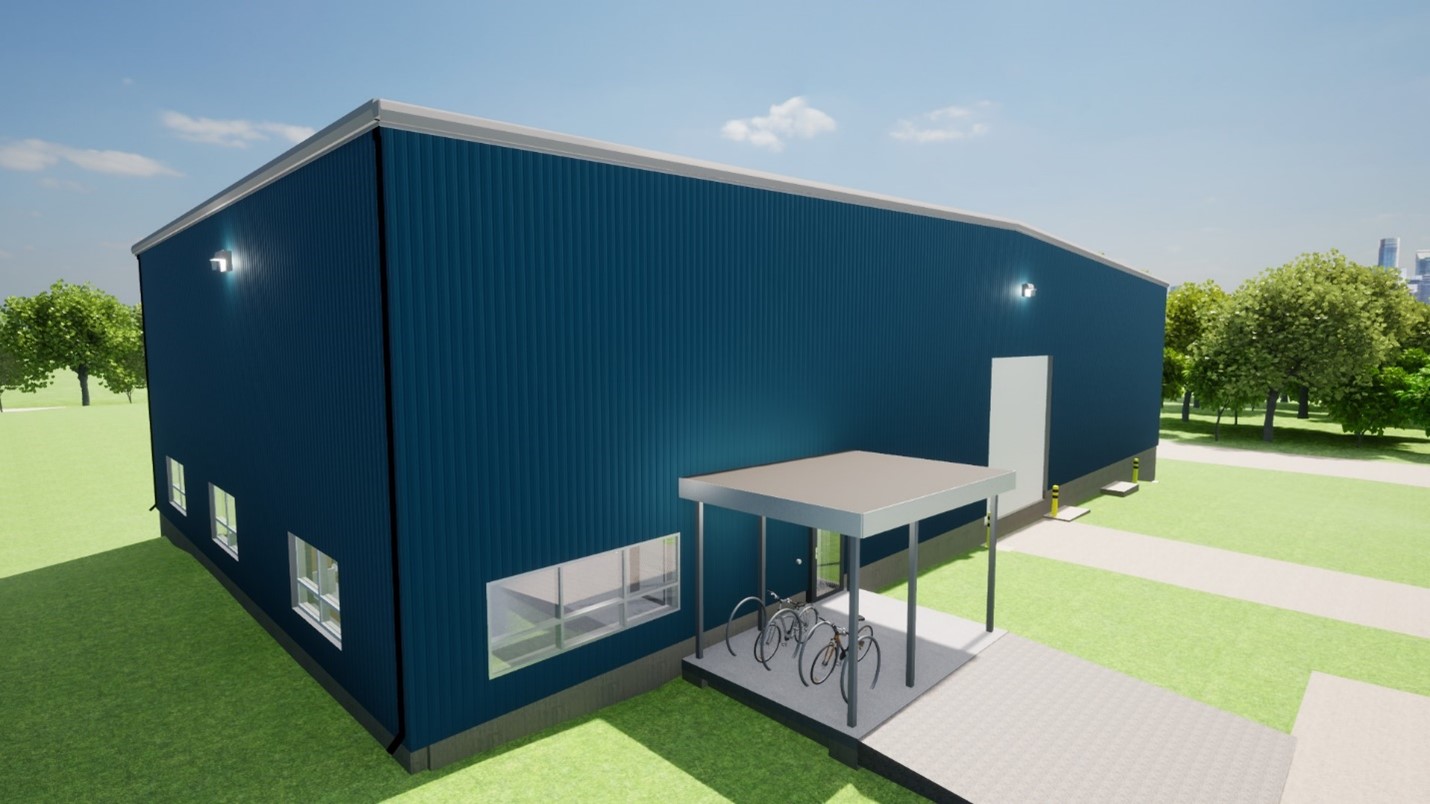Request project updates by email

A 3D rendering of CASTLE Laboratory, which will be located on West Campus, off Johnson Street.
Climate Adaptive infraStructure Testing and Longevity Evaluation (CASTLE) Innovation Cluster laboratory
Construction has commenced on a new facility designed to advance civil engineering infrastructure testing at Queen’s University and the Royal Military College (RMC). The single-floor, 670-square-metre Climate Adaptive infraStructure Testing and Longevity Evaluation (CASTLE) Innovation Cluster laboratory will include the world’s only large cyclic triaxial soil strength testing apparatus, and a new 6-m diameter centrifuge capable of accelerating payloads of 1,500 kg up to 100 times Earth’s gravity.
This new technology will position Queen’s and RMC a leader in developing solutions and training experts to improve the resilience of infrastructure to climate change.
The large cyclic triaxial will be used to test mechanical properties of soil and rock samples by applying stress in different directions and allowing for the measurement of different properties such as shear resistance, cohesion, and critical state parameters. The large cyclic triaxial is expected to generate large demand from organizations specializing in mining, dams, and reservoirs.
The centrifuge will be used to conduct accelerated-gravity studies of climate cycles, including being able to accelerate time dependant processes, and will aim to examine failure mechanisms for civil engineering structures as well as soil-structure interactions. The ability to simulate the effects of gravitational forces will allow engineers to optimize designs, improve structural resilience, and develop more accurate predictive models.
The CASTLE lab will be located on West Campus, off Johnson Street and will complement the existing Coastal Engineering Lab (950 Johnson Street). Hoarding has been erected at the construction site in preparation for excavation.
Local, provincial, and national collaboration
Experts from Queen’s GeoEngineering Centre and RMC have been working in a formal partnership since 2002. CASTLE Laboratory will further strengthen this relationship by providing local students with opportunities to conduct research using new advanced technologies.
In addition to Queen’s financial contribution, funding for CASTLE Laboratory was made possible by provincial and federal funding through the Canada Foundation for Innovation, and the Ontario Ministry of Colleges and Universities.
CASTLE Laboratory is scheduled for completion in February 2026.
Related Links
Visit related pages to learn more.
Project Updates
| Activity and Description | Anticipated Duration |
|---|---|
| Overall Project Timeline: Additional details to follow as construction progress. The overall project is expected to take approximately two years. | August 2024 – Feb 2026 |
Project Background & FAQs
- The lab will host unique research equipment
- A unique collaboration with Queen's and RMC
- Site will be the third geothermal installation at Queen's
Construction begins in July 2024.
As planning for the project moves ahead, and more details become available in the coming weeks and months, Queen’s will communicate with area neighbours about project plans and details related to construction. Please sign up here for project updates. If you have questions, please contact us at construction@queensu.ca.
The project will incorporate sustainable technologies to minimize greenhouse gases in support of the sustainability goals set out in the Queen’s Climate Action Plan, as well as follow Queen's Building Standards regarding environmental sustainability. In particular, the primary heating and cooling needs of the building will be met with an energy-efficient geothermal system.
 Find us
Find us